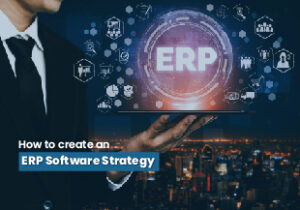LMS Software vs Online Course Platforms: Which One Powers Your Training Needs Better?
A stunning 70% of companies and course creators choose the wrong training tool — and don’t even realize it until it’s too late.
They pour in money, record hundreds of hours of video, launch their training… and then nothing.
No engagement. No results. Just a fancy dashboard collecting digital dust.
The reason?
They never asked the most important question: LMS vs Course Platforms — which one actually fits my needs?
Today, we’re breaking down this battle. And trust me — this choice is way more critical than it looks.
LMS vs Course Platforms — Why This Decision Is So Risky
If you’re thinking “Aren’t they kind of the same?” — you’re not alone.
On the surface, both seem to help you deliver learning online. But they’re built with completely different goals in mind.
- LMS (Learning Management Systems) are made for internal training. Think onboarding, compliance, employee upskilling. They’re structured, secure, and admin-focused.
- Online Course Platforms are built for creators. Coaches, educators, and influencers who want to sell courses publicly. They’re easy, visual, and monetization-ready.
👉 Choosing the wrong one is like using a microwave to bake a cake. Technically possible, but… you’re not going to like the results.
$12,000 Mistake One Company Regretted
Let’s get real for a second.
We once worked with a growing HR team that picked a flashy course platform to run internal training. Why? Because it looked cool and had “pretty themes.”
6 months later:
- Team couldn’t track who completed what
- No way to assign user roles or certificates
- Zero integration with HR tools
They lost $12,000 in productivity and had to rebuild everything in an LMS from scratch.
On the flip side, a content coach used a complex LMS for her parenting course. The tech overwhelmed her. Learners dropped off. Refunds rolled in.
Moral of the story? Choosing between LMS vs Course Platforms isn’t just about features. It’s about function. It’s about fit.
LMS Platforms — For Companies That Want Structure, Not Stress
If your training is meant for employees, corporate teams, or internal upskilling, LMS is your friend.
The Top LMS Software options out there like TalentLMS, Moodle, or Docebo give you control, structure, and powerful tracking.
Why LMS is great:
- Assign user roles: admins, learners, instructors
- Set learning paths, track certifications
- Sync with HR systems (big win for HR heads)
- Generate reports that actually mean something
Imagine onboarding 50 employees, and knowing exactly who passed which module. That’s what LMS Software does for you.
But fair warning — they’re not “plug-and-play.” You may need some setup, training, or even IT support. Not ideal if you’re a solopreneur or non-techy creator.
Online Course Platforms — For Coaches, Creators & Thought Leaders
Now let’s talk to the hustlers, educators, and influencers out there.
If you’re building your personal brand or launching a public course, you need simplicity + beauty. That’s where Best Online Course Platforms like Teachable, Thinkific, or Kajabi shine.
What you’ll love:
- Drag-and-drop course builders (no tech headaches)
- Built-in payment gateways
- Landing pages + email marketing tools
- Community features like Q&A and comments
This is how yoga teachers launch 6-figure courses. How business coaches build loyal communities. How chefs turn their skills into global masterclasses.

But remember — these platforms are light on data tracking and often lack advanced features you’d want in a corporate setting.
📊 Quick Comparison: LMS vs Course Platforms at a Glance
| Feature | LMS Platforms | Online Course Platforms |
| Best For | Internal training, enterprise teams | Public courses, creators, coaches |
| Customization | High | Medium |
| Reporting & Analytics | Detailed (certifications, scores) | Basic (views, progress) |
| E-commerce Capabilities | Limited | Built-in payment options |
| Integration | HR, ERP, compliance tools | Marketing, payment, CRM |
| Learning Path Control | Strong | Weak to moderate |
| Ease of Use | Medium (learning curve) | Very beginner-friendly |
Here’s What Most People Get Wrong
They think fancier software = better results.
But here’s the uncomfortable truth:
You can have the “Best LMS Software” in the world… and still fail if your audience isn’t corporate.
You can have the “Best Online Course Platform”… and still fall flat if you need audit reports and internal control.
It’s like showing up to a business pitch in flip-flops. Great energy, wrong context.
So before you choose, ask:
- Who are you training?
- Do you need reports or revenue?
- Are you running a company… or building a community?
90% of learners drop off if your platform doesn’t “feel right” in the first 15 minutes.
If it’s too confusing, too boring, or too unstructured — they’ll click away and never return.
That’s thousands of hours (and dollars) down the drain.
So whether you choose from LMS Platforms or Online Course Platforms, make sure your learner’s journey feels effortless, clear, and exciting.
Still Confused? Here’s What Prismatic Can Do for You
At Prismatic Technologies, we’ve seen both sides — and we’re here to make sure you don’t waste time or money on the wrong tool.
“We don’t just recommend software. We help you launch learning experiences that actually get results.”
Whether you’re:
- A business leader looking for the Best LMS Software to power employee training
- Or a creator wanting the Best Online Course Platform for monetization
We audit your needs, customize the platform, build the system, and support your growth — so you don’t just launch… you lead.
Let’s talk. Let’s build a smarter way to learn.
FAQs:
Q1: Can I use both an LMS and an online course platform?
Yes, many larger brands use both — LMS for internal training, and a course platform for customer education or monetized content.
Q2: Are course platforms suitable for schools and colleges?
Not always. For structured academic delivery, an LMS with features like grading, assignments, and compliance tracking works better.
Q3: Which platform is easier for a beginner with no tech background?
Definitely online course platforms like Teachable or Thinkific. They’re plug-and-play with built-in help.
Q4: Can I migrate from a course platform to an LMS later?
It’s possible, but often requires manual data migration. Plan your long-term strategy before committing.
Q5: What’s the best LMS Software for a startup or SME?
TalentLMS or LearnDash are great for smaller teams who want flexibility, affordability, and features.
Q6: How does Prismatic choose the right platform for clients?
We start with a free consultation to understand your learners, goals, and industry — then we either set up or build the right platform for you.

